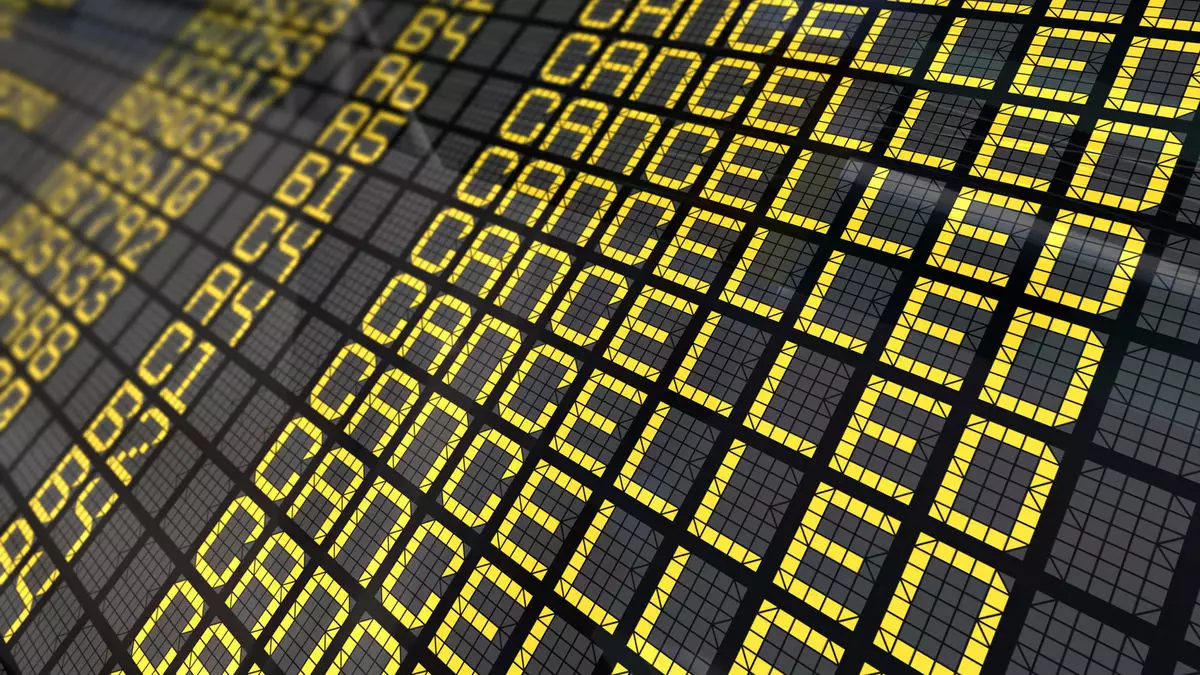The conversation surrounding passenger compensation for flight cancellations and significant delays has reached a critical juncture as the Department of Transportation (DOT) prepares to receive public feedback on a newly proposed regulatory framework. The call for input marks a pivotal moment in U.S. air travel policy, particularly as the leadership within the DOT is set to change hands. Given the complexities involved—from regulatory frameworks to consumer advocacy—the implications of this proposal are vast, warranting a deeper exploration.
The December 5 announcement from the DOT introduced a tiered compensation system aimed specifically at addressing situations where airlines are directly responsible for flight disruptions. By proposing compensation levels starting from $200 for delays of three to six hours and escalating to $775 for cancellations or longer delays, the DOT appears to mirror the structures already enforced in the European Union. This signal indicates a potential shift towards more robust consumer protections in the American aviation landscape.
However, the timing of this proposal is particularly notable. With the public being given a 60-day window for commentary, any response from the incoming Trump administration will likely occur after the comment period has concluded. This raises critical questions regarding the proposal’s future, especially as Sean Duffy steps in to lead the DOT following Pete Buttigieg’s tenure, which was characterized by a push for stronger consumer rights.
Historically, the approach to airline regulations has varied significantly between administrations. Under Buttigieg, airlines faced stricter scrutiny and advocacy for passenger rights, culminating in policy changes that included enhanced refund requirements and greater transparency regarding ancillary fees. Conversely, the previous Trump administration leaned towards deregulation, suggesting that the incoming leadership may not prioritize the current proposal for passenger compensation.
Legal experts have pointed out that the Advanced Notice of Proposed Rulemaking (ANPR) issued by the DOT does not bind the new administration to pursue these regulations further. As aviation attorney Mark Dombroff aptly articulated, it is possible that the proposal may fizzle out, making it “much ado about nothing.” This uncertainty feeds into broader debates about how regulatory landscapes evolve with shifts in political ideologies.
The proposed changes have stirred a mix of responses from both airlines and consumer advocates. Airlines for America (A4A) and the International Air Transport Association (IATA) have expressed vehement opposition, arguing that mandated cash compensation would artificially inflate ticket prices and limit accessibility for budget travelers. Their concerns echo a common argument against increased regulation: that costs will invariably be transferred to consumers.
However, contrary evidence suggests that enhanced compensation measures need not incur substantial costs. Advocates like Skycop and AirHelp posit that the overall impact of such compensation structures is minimal. They point to European regulations which have not led to significant price hikes. Instead, they argue that flight punctuality has improved under stringent compensation guidelines, suggesting that enhanced accountability may ultimately serve the interests of both travelers and airlines.
As discussions unfold, a vital consideration remains: how can regulations be structured to protect consumer rights while ensuring the operational viability of airlines? The crux of this discussion lies in the income and loss balance for airline carriers, particularly in an era where the cost of air travel is increasingly scrutinized.
A 2023 study highlighted that compliance with EU compensation laws improved flight punctuality, suggesting that such regulations might incentivize better operational standardswithout leading to significant consumer costs. It raises the question: Could a harmonious relationship exist between strict compensation rights and profitable airline operations in the U.S.?
Consumer advocates argue that the pursuit of fairness warrants these changes, suggesting that the passenger experience should be safeguarded against the unpredictability of air travel disruptions. The sentiment echoed by many is clear: enhancing consumer protections can build trust in the airline industry and ensure that passenger rights are acknowledged, particularly in an arena where disruptions have become a common occurrence.
As the comment period for the proposed compensation regulations nears its conclusion, the fate of airline passenger rights hangs in a delicate balance. The incoming administration’s approach will significantly influence whether the proposed regulations gain traction or are set aside for less stringent alternatives.
This scenario showcases the broader implications of policy-making amidst a changing political landscape, emphasizing that the future of airline passenger compensation remains a contentious and evolving discussion. With consumer advocates and airlines at odds, the real test will be whether effective solutions can unify these interests and lead to a just and equitable aviation experience for all.

